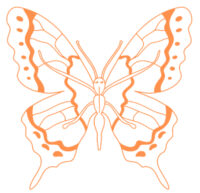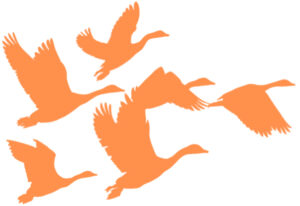Creating a diverse garden

Action
A diverse garden is an oasis of biodiversity, providing food and shelter for a variety of species. By selecting a range of native plants and avoiding pesticides, you create an environment conducive to local insects, birds and other animals. Visit the website of the local botanical garden in Meise for guides to native plants. These plants, adapted to the climate and soil of your region, often require less maintenance, which translates into water and energy savings. A diverse garden helps maintain the ecological balance and offers a rich and educational experience for gardeners. By integrating planters and choosing a variety of plants, you can create a living, dynamic space that promotes environmental health.
I organise photographic nature walks

Action
Organising walks in green spaces to capture the beauty of local biodiversity not only encourages exploration and appreciation of nature, but also raises awareness of its preservation. These outings are an opportunity to discover and document local biodiversity. Armed with cameras or smartphones, participants explore parks or nature reserves, photographing everything from insects to birds. These images can then be shared on social networks or at community exhibitions, raising awareness of the beauty and fragility of the natural world around them. These walks also strengthen the bond between participants and their natural environment.
Create a butterfly garden

Action
Creating a butterfly garden is a wonderful way of contributing to biodiversity. This project transforms a green space into a haven for butterflies. By choosing native plants that attract butterflies for their nectar or act as host plants for their caterpillars, you create a vibrant ecosystem. This garden not only helps butterfly populations, but also serves as an educational venue for learning about the life cycle of these insects and their role in the ecosystem.
I design or take part in educational games on biodiversity

Action
Create board games or quizzes focusing on biodiversity to learn in a fun and interactive way. These games can cover topics such as threatened species, natural habitats and ecosystems. They are ideal for schools, community groups or family activities, offering a fun way to raise awareness of the importance of biodiversity. They can include cards, game boards, or digital applications.
Launching a sponsorship programme for threatened species

Action
Setting up a sponsorship programme for endangered species can be an effective way of raising awareness and funding conservation projects. By symbolically adopting a species. The funds raised help conservation projects, and sponsors receive regular updates on the status and progress of conservation efforts, reinforcing their personal commitment to preserving biodiversity.
I enjoy biodiversity in my food

Action
Incorporating old vegetables and forgotten varieties into your diet contributes to the diversity of crops and the conservation of plant species. These often more nutritious foods support sustainable agriculture and help maintain an ecological balance. By choosing these products, you are encouraging responsible farming practices and strengthening the local food chain. What’s more, this approach provides an opportunity to discover unique flavours and raise awareness of the importance of food diversity.
I install insect hotels

Action
Insect hotels provide a safe haven for pollinators and beneficial insects in urban and rural gardens. They are easy to install and can be made from recycled materials. These diverse structures are home to a variety of insect species, promoting pollination and biodiversity. By providing a habitat for solitary bees, ladybirds and other insects, they help to naturally control pests and enrich the local ecosystem. Installing an insect hotel is a simple but powerful way of supporting local wildlife.
Taking part in Biodiversity Day

Action
Biodiversity Day is the perfect opportunity to raise awareness of the importance of biological diversity. You can organise or take part in events such as organic picnics, awareness-raising workshops or educational nature walks. These activities provide an opportunity to discover and share the wealth of local flora and fauna, while raising awareness of their value and necessity for our ecosystem.
Become an eco-volunteer

Action
Environmental volunteering is a proactive way of helping to protect nature. By taking part in conservation projects, such as identifying endangered species or restoring natural habitats, you are making a direct contribution to preserving biodiversity. These experiences are also personally rewarding, offering unique insights into the environment and the satisfaction of contributing to an essential cause.
Creating a natural refuge for biodiversity

Action
Turn your garden or green space into a haven for biodiversity. By avoiding pesticides and encouraging a diversity of native and melliferous plants, you create a haven for pollinating insects, birds and other wildlife. This contributes not only to the health of your garden, but also to the local ecosystem, providing a safe and nourishing space for wildlife.
Installing a green roof
Action
Green roofs are good for biodiversity in urban areas. By installing a garden on your roof, you create a micro-habitat for various species, encouraging the presence of insects and birds. These green spaces also help to purify the air, insulate buildings and manage rainwater, making cities more sustainable and more welcoming to nature.
I grow an organic vegetable garden
Action
Growing an organic vegetable garden is an excellent way of supporting biodiversity while producing healthy food. By avoiding chemical pesticides and fertilisers, you encourage a greater variety of plant and animal species in your garden. Diverse crops attract and feed a multitude of pollinating insects and small animals. What’s more, organic gardening boosts soil health, promoting a rich, balanced ecosystem. It’s also an educational and enriching experience, raising awareness of the importance of sustainable agriculture.
Reducing my drinking water consumption
Action
Saving drinking water is crucial to preserving natural resources. Using rainwater for irrigation and adopting intelligent watering practices contribute to sustainability. Reducing drinking water consumption in gardens and green spaces helps to preserve this vital resource, while supporting plant health and biodiversity. These responsible practices play an important role in combating water wastage and protecting aquatic ecosystems.
I take part in reforestation programmes
Action
Get involved in reforestation initiatives to help restore and preserve forests. Planting trees helps to combat climate change, preserve wildlife habitats and maintain healthy ecological cycles. These programmes can be local or international, offering an opportunity to understand the global impact of deforestation and the importance of forests for biodiversity. Taking part in these initiatives is also a tangible way of leaving a positive legacy for future generations.
Adopting a beehive
Action
Adopting a beehive is a practical way of supporting bees, which are essential pollinators for our ecosystem. This can involve sponsoring a hive at a beekeeping farm or installing a hive in your own garden. By adopting a hive, you contribute to the health and survival of bee colonies, while learning about their crucial role in pollination. It’s also an opportunity to raise awareness of the importance of these insects and the threats they face.
I organise educational workshops on biodiversity
Action
Educational workshops are an excellent way of sharing knowledge about biodiversity and encouraging responsible action. These sessions can cover a range of topics, such as recognising local species, creating biodiversity-friendly gardens or understanding the links between human actions and the health of ecosystems. By organising these workshops in schools, businesses or your community, you can help raise awareness and inspire others to take action for nature.
I commit to the fight against poaching and the illegal trade in species

Action
Take an active part in the fight against poaching and the illegal trade in species, which are major threats to biodiversity. You can do this by supporting organisations dedicated to this cause, and by informing yourself and others about these issues. You can also contribute by being vigilant when you travel and by avoiding buying products from threatened species. Your commitment to this fight is crucial for the preservation of endangered species and global biodiversity.
I contribute to citizen databases

Action
Taking part in citizen science projects is an exceptional way to make a significant contribution to research and the protection of biodiversity. Take part in citizen science projects such as counting birds as part of the Observatory of Fauna, Flora and Habitats. The data collected is often used by researchers to track the state of animal and plant populations, monitor environmental changes and formulate conservation plans. You can also find out about local projects and environmental initiatives from the Brussels-Capital Region.
Becoming an ambassador for biodiversity

Action
Becoming a biodiversity ambassador means taking on an active role in educating and raising public awareness of the importance of biological diversity. Get involved with a local NGO such as Natagora or Bruxelles Environnement and use your social networks to share articles, photos, videos or even personal experiences that talk about the value and urgency of conserving biodiversity. You can also organise or take part in educational events, such as workshops, seminars or community clean-ups. By taking on this role, you encourage others to become aware and take action, amplifying the positive impact you can have on the environment. The power of the collective is immense, and every action counts in the fight to preserve our planet.
